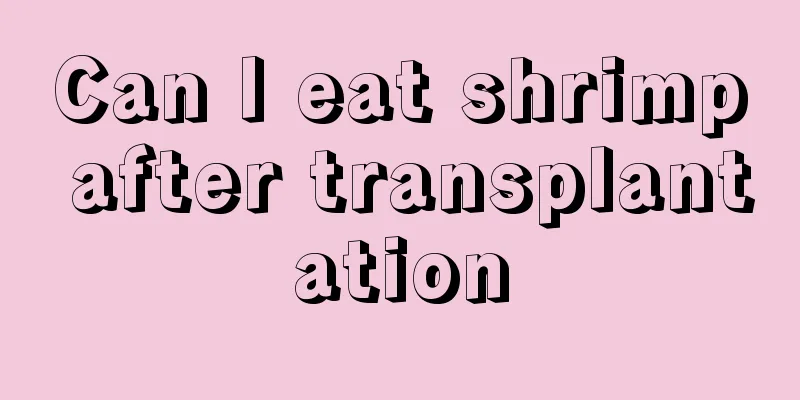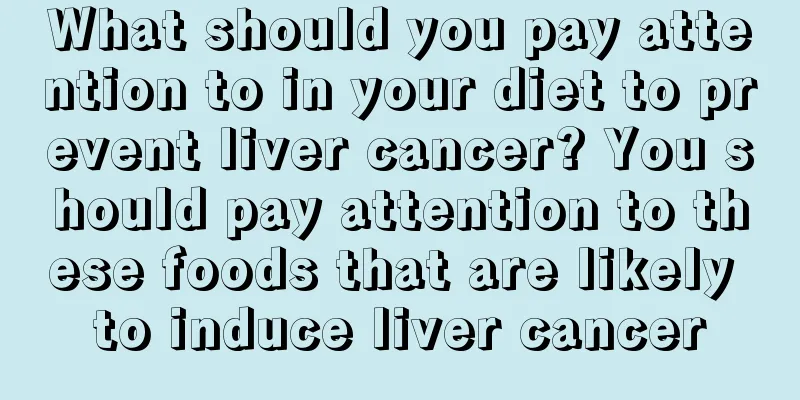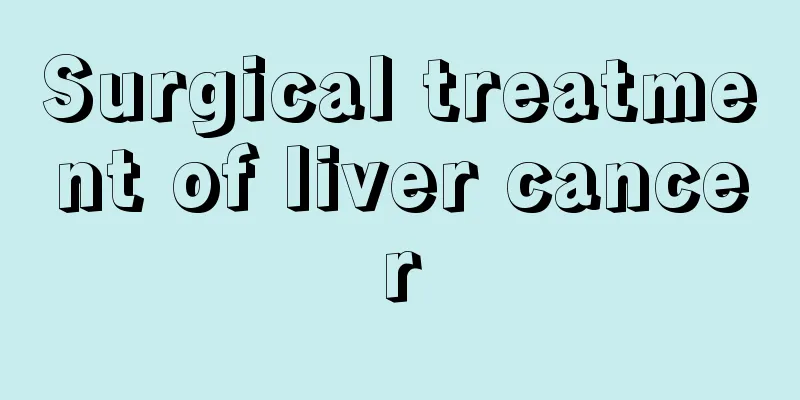Can I eat shrimp after transplantation

|
Test tube transplantation can be understood as a means of helping women become pregnant. Because many people cannot conceive naturally, they have to resort to scientific means to become prospective parents. It is worth our attention. The success rate of test tube transplantation is not 100%, and various preparations before and after the transplantation may affect the results of the transplantation. Can I eat shrimp after IVF transplantation? Most seafood foods are cold in nature and can easily cause allergies, especially crabs and turtles, which should be avoided. Specific attention is as follows: 1. Choose an easily digestible diet After the test tube transplant surgery, you need to stay in bed to rest, which reduces the amount of exercise, leading to decreased appetite and indigestion. Therefore, you should choose easily digestible foods. Such as drinking some rice porridge, stew and other foods that aid digestion. 2. Avoid constipation During in vitro fertilization, progesterone drugs are used to relax the intestinal muscles and slow down intestinal motility. Coupled with bed rest and lack of exercise, constipation can easily occur. In order to prevent or alleviate the symptoms of constipation, you can eat more foods rich in dietary fiber such as celery, cabbage, celery, lotus root, yam, etc. to promote defecation. In addition, eating a proper amount of coarse grains can also promote bowel movements. Eat less spicy food. 3. Avoid diarrhea Due to limited medical conditions, test tube transplantation may be performed in a different location. Therefore, before and after the transplantation, you may have to stay in a hotel near the hospital and eat fast food. It is also easy to have problems with acclimatization, so you need to pay more attention to your diet. To avoid diarrhea, it is best to choose clean and tidy restaurants when eating, rather than small restaurants with no hygiene guarantees. 4. Avoid eating foods that may cause allergies People with allergic constitutions are prone to allergies to pollen, metals, drugs, etc., so they are also prone to allergies after in vitro fertilization transplantation. So in terms of diet, you should not eat seafood and other foods that are prone to cause allergies; in addition, to avoid allergies, expectant mothers should be aware of their allergens and stay away from them. 5. High-protein diet Before the test tube transplant, the doctor will use ovulation-stimulating drugs to promote ovulation. Due to the excessive stimulation of the ovaries by the drugs, the patient will experience discomfort such as abdominal distension. At this time, try to eat high-protein, easily digestible foods, preferably small meals, and control salt intake appropriately. For example, you can eat tofu, eggs, yogurt, etc. |
<<: Anti-inflammatory drugs for dorsal nerve swelling
>>: Can I eat beef after transplantation
Recommend
What is the best way to treat advanced lung cancer? How does TCM treat advanced lung cancer with dialectical treatment?
In traditional Chinese medicine, lung cancer is d...
What are some folk remedies for treating vascular headaches?
Vascular headache is a disease that has a great i...
If I have rectal cancer and have children, will it be hereditary?
We all know that diseases are very harmful to the...
What should I do if the flesh inside my face is swollen and painful?
In winter, because the air temperature outside is...
What should I do if a piece of my molar fell off
Brushing teeth and washing face are things that e...
Teach you four tricks to cure snoring
Some people always snore when they sleep, which m...
Analysis of the reasons for the spread of lung cancer
Many people may be unfamiliar with the metastasis...
Doing this to your thumb can actually cure diseases
Each of us has a thumb, but did you know that our...
How can I make my milk supply sufficient
For new mothers who have just given birth, the mo...
Healthy dinner abides by the "four no" policy
There seems to be less mention of how to eat more...
What are the symptoms before death in late stage pulmonary fibrosis
Generally speaking, pulmonary fibrosis is more co...
Does an enlarged thyroid gland mean hyperthyroidism?
An enlarged thyroid gland, commonly known as hype...
Let’s take a look at some screening methods for breast cancer
Many people are not clear about the detection met...
How long does it take for synovitis to allow one to walk normally
Once synovitis occurs, it will affect the patient...
Can green radish remove formaldehyde?
Many people believe that green plants can absorb ...









